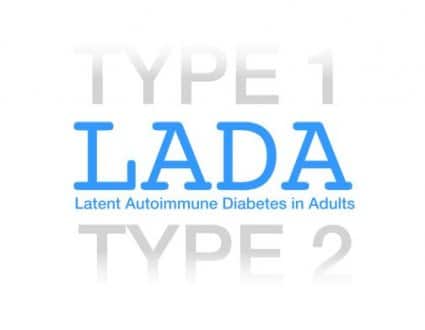What is Latent Autoimmune Diabetes in Adults?
LADA, or latent autoimmune diabetes in adults, is a form of type 1 diabetes (T1D) which develops slowly into adulthood. Unlike a typical T1D diagnosis, when you are diagnosed with LADA, you will not require insulin therapy right away. LADA occurs when the immune system mistakenly attacks and destroys the beta cells in the pancreas, just like in type 1 diabetes except it occurs later in life. As a result, the pancreas cannot produce insulin. Insulin is responsible for storing and processing glucose for the body tissues to use as energy. Glucose is a form of sugar which is one of the main sources of fuel for your body. When you eat foods that are rich in carbohydrates, glucose is absorbed into the bloodstream. Without insulin, glucose cannot enter the body’s cells for energy. Hence, they stay in the bloodstream and build up. Excess glucose in the bloodstream can become dangerous, leading to life threatening complications. However, compared to type 1 diabetes in children, LADA develops more slowly. While T1D develops quickly in children, sometimes within a few days or weeks, symptoms of LADA can take years to develop.
This condition can first appear to be type 2 diabetes (T2D), thus LADA might be mistakenly diagnosed for T2D. T2D is a chronic medical condition where the body becomes resistant to insulin. Like T2D, latent autoimmune diabetes in adults develops over a longer time period compared to T1D in young adults and children. Sometimes, LADA is called type 1.5 diabetes. Although this is not an official name, it shows that LADA is a form of T1D, which has the same characteristics as T2D. Initially, people with LADA can rely on diet, exercise, weight control and oral medication to manage their blood sugar levels. However, when the beta cells lose their ability to produce insulin with time, insulin injections will eventually be required.
Signs and Symptoms of LADA
Latent autoimmune diabetes in adults may result in early signs and symptoms such as hunger even after eating, feeling tired always and foggy headedness. When you notice these early signs and symptoms of LADA, it is important you seek medical attention to prevent risk of having diabetes complications. As the condition progresses, you may develop symptoms such as blurred vision, tingling nerves, and frequent urination.
Treatment
For treatment of LADA to occur, it is important for a proper diagnosis. Diagnosing latent autoimmune diabetes in adults can be a challenge. Usually, diagnosis aims at differentiating LADA from type 2 diabetes. This is achieved by looking for presence of autoantibodies in people with diabetes who do not need insulin therapy. A GAD antibody test will be performed so as to test for presence of autoantibodies. If the test shows there is a presence of these autoantibodies, it can be useful in identifying LADA. Your doctor may also perform another test known as a C-peptide test. Obese patients with LADA can be treated through a low calorie diet, increased physical exercise and oral medication such as metformin. Patients with diabetes do not require insulin therapy until about six months after diagnosis. However, some studies show that starting with insulin therapy can help preserve the ability of beta cells to keep producing insulin. It is important you keep monitoring your blood sugar level as part of your treatment program.
Disclaimer: Please note that the contents of this community article are strictly for informational purposes and should not be considered as medical advice. This article, and other community articles, are not written or reviewed for medical validity by Canadian Insulin or its staff. All views and opinions expressed by the contributing authors are not endorsed by Canadian Insulin. Always consult a medical professional for medical advice, diagnosis, and treatment.





